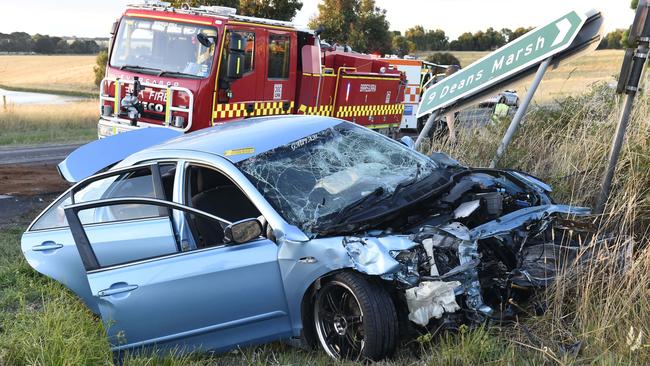Alcohol, drugs contribute to ‘hidden’ road toll, surgeons warn
ALCOHOL and drugs are an increasing problem on our roads surgeons warn, after they treated more than 100 people following road accidents over the Christmas period.
VIC News
Don't miss out on the headlines from VIC News. Followed categories will be added to My News.
TRAUMA surgeons are urging Victorians to take care on the roads as they return from holidays over the next week, after they treated more than 100 people over the Christmas and New Year period.
Surgeons at the Royal Melbourne and Alfred hospitals treated 54 patients in critical or serious conditions as part of a “hidden road toll” of 101 road trauma admissions in the last week of December.
They warn that drugs and alcohol are an increasing problem on the roads.
Christmas Day was the busiest for The Alfred, when they treated 10 patients including two with life-threatening injuries.
ROAD TOLL: TWO DEAD AFTER SEPARATE CAR CRASHES IN VICTORIA
ROAD TOLL: NEW STUDY REVEALS A SIMPLE FIX

The RMH saw the most road trauma patients on Christmas Eve, admitting seven patients including two motorcyclists and two cyclists.
Last year ended with 33 fewer deaths on Victorian roads than the previous year — although 11 lives were lost in the last week of 2017 alone.
This year, however, there have already been 11 deaths on Victorian roads, up from eight the same time last year.
RMH general and trauma surgeon Dr Rose Shakerian said it was “frustrating” the role alcohol and drugs were increasingly playing in road trauma.
“We’re in the festive season with summer, people are drinking a bit more and they don’t always appreciate the consequences,” she said.
“We have patients who are innocent bystanders who get caught up in it, and it’s an absolute tragedy.
“It’s heartbreaking to speak to family members and explain the severity of the injuries. And for the patients who don’t survive, that’s even more heartbreaking. It’s the loved ones that end up suffering more.”
Director of trauma services at The Alfred, Professor Mark Fitzgerald, urged motorists to slow down and be more courteous.
“A lot of the accidents we see now because drivers might be on unfamiliar roads, there’s more traffic in some areas and people are tired,” Prof Fitzgerald said.
“On longer drives be prepared to stop, have a nap or share the driving with someone else if you can.”


